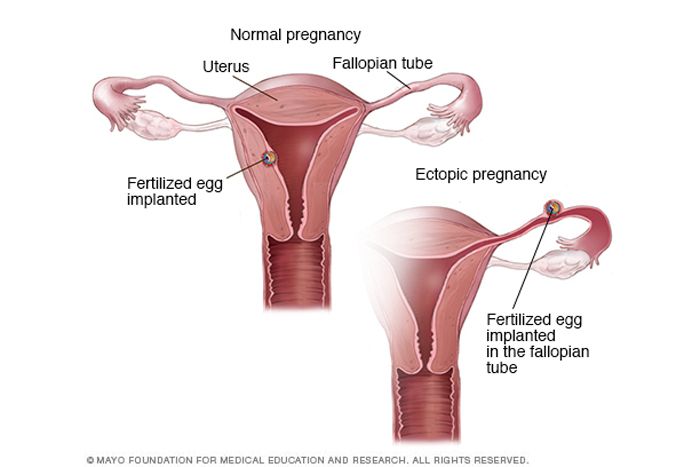The Right Way to Treat the Symptoms of an Ectopic Pregnancy
An ectopic pregnancy is a dangerous and potentially life-threatening condition. An ectopic pregnancy occurs when a fertilized egg develops in an area other than the uterus, such as in the fallopian tubes.
This can happen when the egg implants itself within the wall of the uterus, creating a sac (endometrium) that expands into the cavity and creates a blockage. An ectopic pregnancy usually occurs due to a lack of good uterine blood supply. Other conditions that may lead to an ectopic pregnancy include pelvic inflammatory disease, genetic inheritance, and exposure to medications like aspirin and ibuprofen.
Early symptoms of an ectopic pregnancy include heavy vaginal bleeding, pain or numbness with or without severe cramping, or sudden abdominal pressure. You should call 911 immediately if you experience heavy vaginal bleeding, intense abdominal pain or pressure, or extreme back pain or tenderness. If you notice any of these symptoms, consult your doctor immediately. However, if you notice a small amount of bleeding, you may be able to self-diagnose it. Also, if your physician diagnoses you with the condition, there are other ways to treat the symptoms, such as taking a pain reliever, undergoing a surgery, or receiving a course of antibiotics.
In addition to the symptoms listed above, severe abdominal pain combined with vomiting, nausea, and fever are also common. If you experience any of these symptoms, you should immediately contact your physician or OB/GYN to ensure that you are not suffering from an ectopic pregnancy.
Unfortunately, having an ectopic may lead to death if the fertilized egg bursts through your fallopian tubes
The symptoms described above are typically present at birth and cannot be treated without intervention. However, if the fertilized egg grows inside of the uterus, treatment can be very successful. An immediate medical attention from a doctor can prevent permanent damage and/or death to the child that may be inside of the fallopian tubes.
If a fertilized egg breaks through the fallopian tubes, you may have a miscarriage, sepsis, shock, bleeding, or an infection. If you suspect your child may be experiencing one of these symptoms, see your doctor immediately. These symptoms are often mistaken for pre-existing medical conditions, so it is important to take them seriously.

Symptoms of an ectopic pregnancy usually require immediate medical attention. They are not as dangerous as they seem. If your doctor suspects that pregnancy is at risk, your body will release hormones that will terminate the pregnancy and prevent further damage to the fallopian tubes.
While you can try to terminate the pregnancy yourself, it is always best to seek help from a qualified doctor. This is the safest way to deal with an ectopic pregnancy. Your family doctor will help you with this, and will also advise you on how to treat and what to do if your child develops complications related to your topic.
If you think you may be having an early pregnancy, you need to call your doctor right away
A woman with an ectopic pregnancy may not have any symptoms, but it is not uncommon for her to bleed, vomit, and / or be at increased risk of infection. This is why it is so important to call your doctor if you experience any of these symptoms.
When it comes to your fallopian tubes, you will want to remain calm at all times. If you experience severe pain, the best thing to do is go to the hospital and stay in the Intensive Care Unit until help arrives. Do not try to self-medicate by drinking or smoking; it may cause the condition to become worse.
Do not use the restroom when you are in the ER; use the emergency room to go. The hospital may provide you with additional care, including IV's and surgery. You do not want your condition to worsen, because you may have to stay overnight in the hospital.
As mentioned above, the treatment options that are available to you are numerous. It is important to talk with your doctor about which treatment option is right for you. If you have an ectopic pregnancy, you may not need to seek treatment. If you are unsure, however, and if you are concerned about your pregnancy, you should contact your physician right away.
